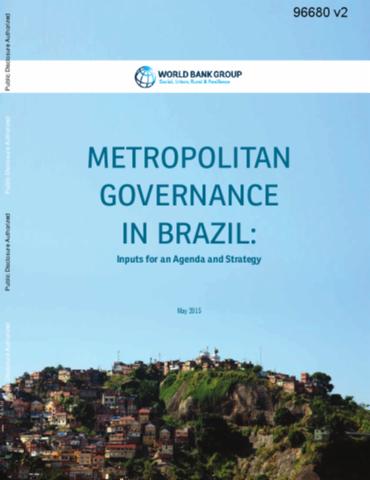The World Bank is a vital source of financial and technical assistance to developing countries around the world. We are not a bank in the ordinary sense but a unique partnership to reduce poverty and support development. The World Bank Group has two ambitious goals: End extreme poverty within a generation and boost shared prosperity.
- To end extreme poverty, the Bank's goal is to decrease the percentage of people living on less than $1.25 a day to no more than 3% by 2030.
- To promote shared prosperity, the goal is to promote income growth of the bottom 40% of the population in each country.
The World Bank Group comprises five institutions managed by their member countries.
The World Bank Group and Land: Working to protect the rights of existing land users and to help secure benefits for smallholder farmers
The World Bank (IBRD and IDA) interacts primarily with governments to increase agricultural productivity, strengthen land tenure policies and improve land governance. More than 90% of the World Bank’s agriculture portfolio focuses on the productivity and access to markets by small holder farmers. Ten percent of our projects focus on the governance of land tenure.
Similarly, investments by the International Finance Corporation (IFC), the World Bank Group’s private sector arm, including those in larger scale enterprises, overwhelmingly support smallholder farmers through improved access to finance, inputs and markets, and as direct suppliers. IFC invests in environmentally and socially sustainable private enterprises in all parts of the value chain (inputs such as irrigation and fertilizers, primary production, processing, transport and storage, traders, and risk management facilities including weather/crop insurance, warehouse financing, etc
For more information, visit the World Bank Group and land and food security (https://www.worldbank.org/en/topic/agriculture/brief/land-and-food-security1
Resources
Displaying 921 - 925 of 4907Metropolitan Governance in Brazil
In less than fifty years, Brazil evolved from a predominantly rural society and economy to a highly urbanized country in which 85 percent of its people now live in urban areas and more than 90 percent of the country’s GDP is generated in the cities. This rapid urbanization process was characterized by a lack of planning and an enduring framework of inequality, resulting in high degrees of concentrated poverty in the urban areas. Much of this urbanization has taken place in metropolitan regions (MRs).
Doing Business in Nigeria 2014
Nigeria accounts for nearly one-fourth
of Sub-Saharan Africa s population and is the seventh most
populous country in the world. As of April 2014 it is
recognized as the continent s largest economy. Ranking 13th
in the world for its oil production, Nigeria is Africa s
largest producer and holds the second highest proven oil
reserves on the continent, after Libya.3 Since embarking on
the path of democracy in 1999, the country has enjoyed
Supporting Womens Agro-Enterprises in Africa with ICT
A new generation of information and
communication technologies (ICTs) is finding a small
foothold among poor, small-scale farmers in developing
countries. Even so, many barriers still prevent poor rural
people from accessing, using, and benefiting from new ICT
tools and platforms, and those barriers are arguably higher
for rural women. The relationship between gender and
agriculture has been studied intensively over the years, and
Bolivia
The Country Opinion Survey in Bolivia
assists the World Bank Group (WBG) in gaining a better
understanding of how stakeholders in Bolivia perceive the
WBG. It provides the WBG with systematic feedback from
national and local governments, multilateral/bilateral
agencies, media, academia, the private sector, and civil
society in Bolivia on 1) their views regarding the general
environment in Bolivia; 2) their overall attitudes toward
Côte d'Ivoire
The Country Opinion Survey in Côte
d’Ivoire assists the World Bank Group (WBG) in gaining a
better understanding of how stakeholders in Côte d’Ivoire
perceive the WBG. It provides the WBG with systematic
feedback from national and local governments,
multilateral/bilateral agencies, media, academia, the
private sector, and civil society in Côte d’Ivoire on 1)
their views regarding the general environment in Côte







